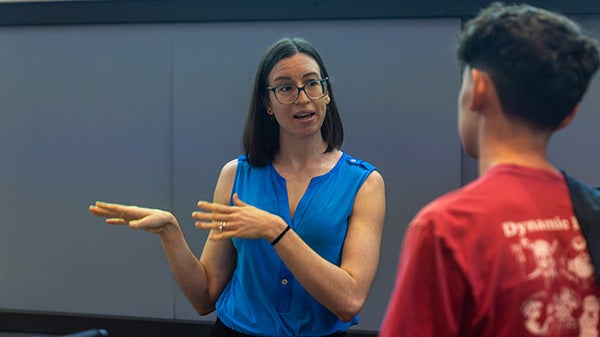There’s lots of information available about personal statement essays, but don’t underestimate the importance of supplemental essays. Supplemental sections differ from institution to institution. Supplemental sections are unique to each institution and provide insight to what that institution cares about. The questions asked are targeted and provide you with a sense of what that school values. So don’t treat them lightly. Supplemental sections provide extremely valuable information to admission counselors.


Here are four pieces of advice to support your supplemental writing and ensure that every word counts!
1. Share specific details that answer the prompt.
Remember that the people reading your application want to understand your interests, background and perspective through your eyes. It’s easy to write, “I’m passionate about biomedical engineering” or “I’m fascinated by history,” but moving beyond general descriptions towards specific experiences, interests and thoughts is often more revealing.
Instead of writing that you enjoy an academic subject or saying that you like a school, can you identify the origin of your interest in a particular area or offer insight into your thinking? Approaching the supplements with specific details in mind can better help you showcase your distinct perspective and personality.


2. Treat your application as a story with a beginning, middle and end.
Your application is your personal story, so think of the supplement as a conclusion. Rather than introducing surprises, aim to provide a satisfying closure that bridges the gap between what you’ve done in the past and where you may be headed in the future. Each part of your application — especially your activities and essays — should build toward what you highlight in the supplement.
As you reflect on the activities and accomplishments that excite you the most, admission counselors will be curious about how you plan to build on those foundations in college. Will it be through specific classes, student government, campus clubs or other forms of engagement? Use this section to expand on the foundation set by the rest of your application and offer a glimpse of your potential path forward.
3. Consider what you’ll gain from attending each school and how you’ll contribute if you attend.
Admission counselors look for reasons to admit students — they want to advocate for you! The more knowledgeable you are about each school’s student life, academics and campus programs, the more effectively you can write detailed and compelling supplements. Proximity to family or campus size may initially spark your interest in a university; however, writing about these factors in a supplemental essay doesn’t necessarily reflect deep exploration of your potential home for the next four years.
Attending a campus tour or virtual information session can be particularly helpful for identifying why this school is right for you. Take notes about experiences that interest you, and use these as a launching point for further research. Every student has the potential to contribute and succeed, but your supplement can demonstrate how an institution aligns with the experience you’re looking for.


4. Ask yourself what you’re really looking for in a college or university
Writing supplements can be challenging, but that’s because it requires investing real thought into each application. Often, the supplements that come most naturally can indicate the schools that you’d be a great match for.
In contrast, if you’re really struggling to answer a school’s supplemental prompts or aren’t as excited to learn more, it’s worth reevaluating your reasons for applying to that college. It’s okay if your research or personal feelings lead you away from a school rather than towards it. Refining your college list is a normal part of the process, and being honest with yourself is the first step in writing a genuine and thoughtful supplemental essay.
-Steffannie Alter, ‘19 (Published 6/18/2025)

Keep Exploring
The college application journey can often feel like navigating a complex maze. As a Master of Accounting student at the Jones Graduate School of Business who completed the application process for both her undergraduate and graduate degrees, Yamila understands the stress and pressure that come with planning for your future. Below, she shares her best advice for practicing self-care and finding balance along the way.
Getting ready for your admission interview? Rice student and Owl Interviewer Cheryl, Baker ‘26, shares the inside scoop on how to ace your conversation. Relax! We're not here to ask trick questions, just to get to know the real you!
For Hong Lin, Brown '26, the journey to Rice began when he saw a QuestBridge flyer on a counselor’s resource table and received a surprise invitation in the mail. He started his College Prep Scholars application soon after, not realizing that this seemingly small step would mark a pivotal moment in his academic journey.
Helpful Links
713-348-7423
admission@rice.edu
M-F 8:30 a.m. to 5 p.m. CT


